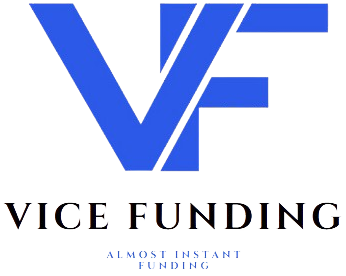
Business Financing Options for Startups | Business Loans
Financing Options for Startups
Quick Overview
- Startups of all sizes have difficulty securing funding
- Non-traditional options are most popular for startups
- SBA loans and some traditional financing possible
- Home equity and 401K loans are also an option
By Joe Marone | Last Updated: March 18, 2024
Business Financing Options for Startups | Business Loans
Financing Options for Startups
Quick Overview
- Startups of all sizes have difficulty securing funding
- Non-traditional options are most popular for startups
- SBA loans and some traditional financing possible
- Home equity and 401K loans are also an option
By Joe Marone | Last Updated: March 18, 2024
Financing Options for Startups
One of the biggest challenges faced by startup founders is securing the funding they need to get their businesses off the ground. While seed money is often required, startups can face difficulties obtaining loans due to the lack of business credit history or substantial revenue. Fortunately, there are various financing options available to help entrepreneurs turn their ideas into reality. Here’s a comprehensive guide to financing options for startups at all stages.
Options for Your Initial Funding
Friends and Family Loans
For many startup founders, turning to friends and family is one of the most accessible ways to secure initial capital. While the idea of borrowing from friends or family may seem uncomfortable due to potential emotional and relational conflicts, it remains a highly effective way to obtain funds for early-stage businesses.
The benefit of borrowing from friends and family is that the terms can be much more flexible than traditional loans—often with lower or no interest. Additionally, these loans may not require any formal qualifications or approval processes. However, it’s essential to establish clear loan terms and a formal contract to protect both parties and avoid misunderstandings. This option is particularly useful if the business owner can demonstrate a viable plan and revenue-generating potential.
Crowdfunding
Crowdfunding has become a popular funding route for many startups, especially those with innovative ideas or products. Unlike other types of funding, crowdfunding allows you to bypass many of the requirements that traditional financing options demand. Instead of a detailed credit history or established revenue, crowdfunding allows entrepreneurs to pitch their ideas to the public via online platforms, where individuals contribute small amounts in exchange for exclusive products, rewards, or even equity.
Crowdfunding platforms have seen significant growth in recent years, with some even allowing equity-based investments. If you have a strong business concept and an engaging pitch, crowdfunding can be an excellent way to secure initial funding without the pressure of traditional lending processes.
Angel Investors
Angel investors are individuals who provide funding to startups in exchange for equity or a return on investment. These investors typically focus on the next generation of business ideas and often look for tech-oriented or innovative startups. Unlike venture capitalists, angel investors are often more willing to take risks with early-stage companies.
While finding the right angel investor can be a challenge, many online communities and local networks, including universities, provide platforms where entrepreneurs can connect with potential backers. Along with funding, angel investors often provide valuable mentorship, making this an appealing option for startup founders seeking guidance in addition to financial support.
SBA Loans
The Small Business Administration (SBA) offers loan programs that can be accessed through participating lenders, such as banks and credit unions. These loans typically have more favorable terms, such as lower interest rates, smaller down payments, and longer repayment periods than traditional business loans.
Two common types of SBA loans include:
7(a) Small Business Loan Program: The SBA’s most popular loan program, ideal for startups that are for-profit and meet the SBA’s definition of a “small business.” The application process for this type of loan can take longer (usually 60-90 days), but it offers attractive terms.
Microloans: SBA microloans provide smaller loans (up to $50,000) to startups for working capital, inventory, supplies, or equipment. These loans are typically faster to obtain than larger SBA loans and are ideal for early-stage businesses.
Home Equity Loans
For entrepreneurs who own a home, a home equity loan can provide the capital needed for a startup. By using the equity in their home, business owners can borrow a lump sum of money with relatively low-interest rates. However, this option carries significant risk, as failing to repay the loan could result in losing the property.
Home equity loans are typically structured with fixed repayment terms over a set period, often up to 15 years, and the amount you can borrow is based on the difference between your home’s current market value and the mortgage balance.
Retirement Loans from a 401(k)
A 401(k) loan allows you to borrow from your own retirement savings, essentially using your 401(k) as collateral. This option can be attractive for startup owners who are confident in their business’s future success and are willing to take on some risk. However, borrowing from your retirement account comes with significant risks, especially if the business doesn’t perform as expected.
It’s important to note that 401(k) loans require a legal structure to ensure compliance with IRS rules. These loans typically require repayment within five years, and if the loan is not repaid, it can be considered a distribution, leading to tax penalties and fees.
Choosing the Right Financing Option for Your Startup
The best financing option for your startup will depend on a number of factors, including your industry, how much funding you need, and your long-term goals. Here are some key considerations when choosing the right option:
How much funding do you need? Some options, like crowdfunding, may be best for smaller amounts, while others, like SBA loans or angel investors, may be better for larger funding needs.
What is your business model? If your business requires significant upfront investment (e.g., purchasing equipment or real estate), a home equity loan or SBA loan may be better suited to your needs.
What is your risk tolerance? Consider how much personal financial risk you’re willing to take. Loans from family or using home equity loans carry personal risk, while angel investors and SBA loans may be less risky personally but come with their own requirements.
Final Thoughts
Securing funding for a startup is one of the most significant hurdles entrepreneurs face, but with the right financing option, you can secure the capital you need to bring your ideas to life. Vice Funding offers a variety of financing solutions and resources to help startup founders navigate their funding options and connect with the right lenders for their needs.
By carefully assessing your funding needs and available options, you can choose the best path for growing your startup and ensuring its long-term success.
Most Popular Guides
Set your business up for financial success.

Ready to get started?
View your options today
Answer some questions in less than 3 minutes, no impact to your credit score, multiple offers YOU are in the driver’s seat!
